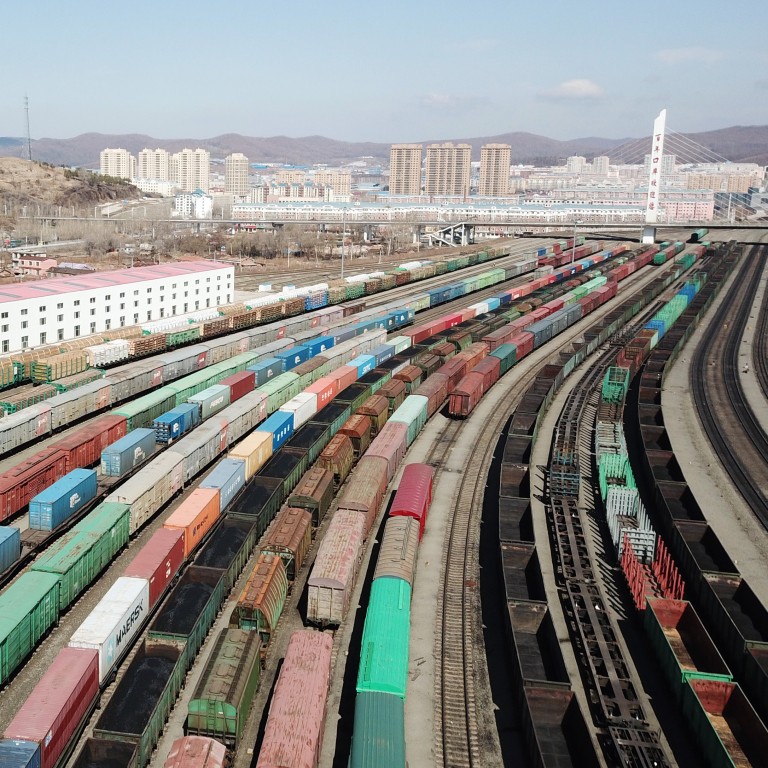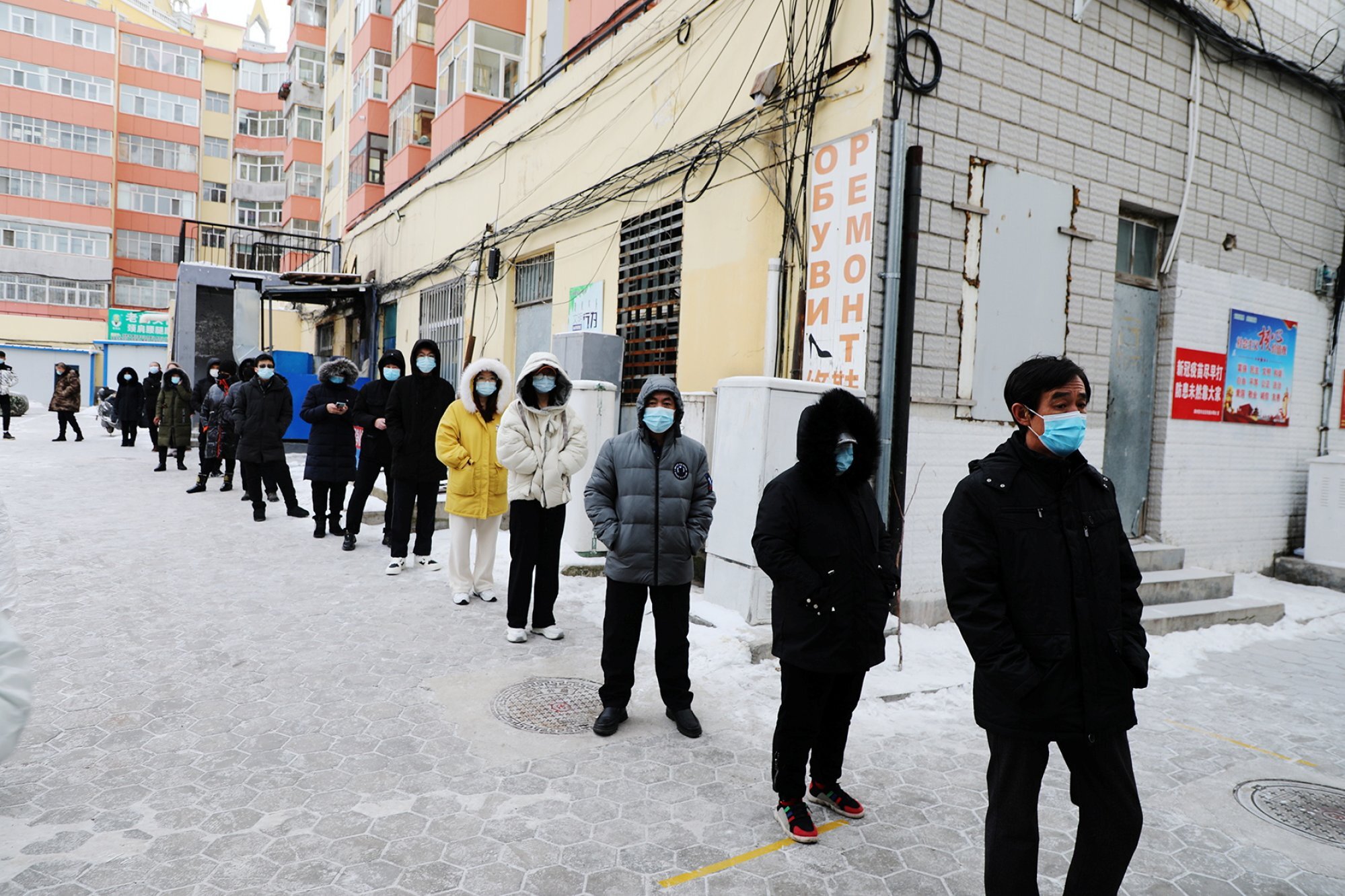
2 border cities in northern China limit rail imports, as region tackles Covid-19 outbreak
- Suifenhe in Heilongjiang on the Russian border and Inner Mongolia’s Erenhot, next door to Mongolia, halt entry of certain non-containerised goods
- The new restrictions underline Beijing’s zero-tolerance stance towards letting the virus spread
Suifenhe, a city in Heilongjiang province bordering Russia, had halted the import of some non-container goods such as coal and non-gold mineral ore as of Tuesday, according to state and local media.
These include some cargoes for coal, oil, copper ore, zinc and iron ore.

The Inner Mongolia autonomous region reported 41 domestically transmitted symptomatic cases between Sunday and Monday, while Heilongjiang detected one local asymptomatic carrier over the same period.
The current outbreak is much smaller than many outbreaks outside China, but affected cities have quickly imposed travel restrictions and closed public venues.
Omicron likely on its way but expert certain ‘zero Covid’ will save China
National authorities vowed this month to step up virus control in border areas, demanding strict implementation of prevention measures on imported cargo at land, air and seaports.
The northeastern cities of Huichun and Dongning, both in Heilongjiang on the Russian border, suspended from mid-November some non-essential imports by road, such as wine, milk and chocolate, to reduce infection risks.
As of November 29, China has reported 98,711 confirmed symptomatic cases, including both local and overseas arrivals. The death toll remained unchanged at 4,636.

